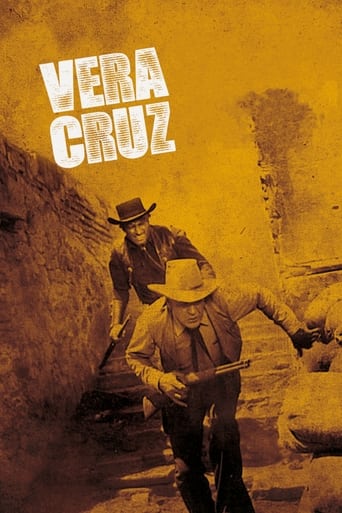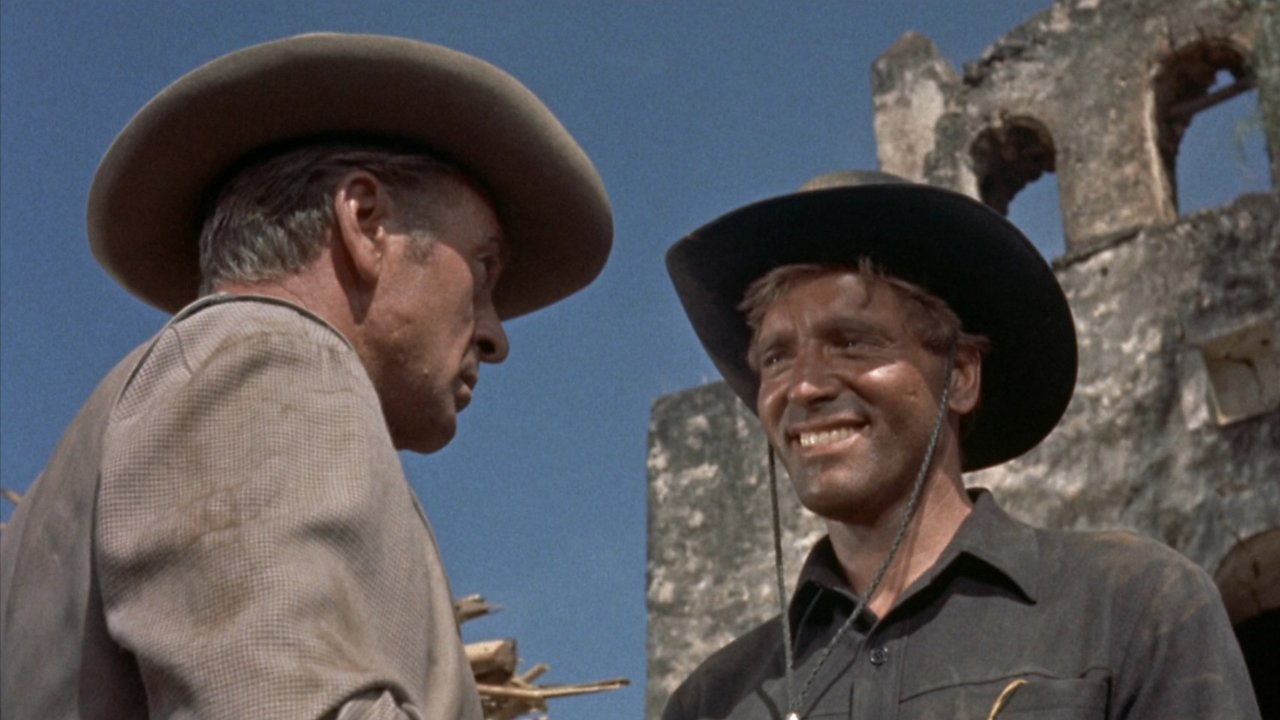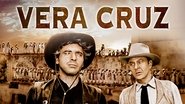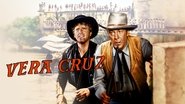grantss
An interesting "western". Not really a western in the traditional sense in that it isn't set in the US, but in Mexico, and the "cowboys" are really mercenaries, hired by the opposing sides in the Mexican war of 1866.On that note, the movie is quite interesting from an historical perspective, in that it deals with the relatively unknown Franco- Mexican War of 1866.Good plot, using some of the actual characters from history (Emperor Maximilian, for one).Solid performances from Gary Cooper and Burt Lancaster in the lead roles. It was a sort of changing of the guard, as Gary Cooper's career was past its peak, and Lancaster's was taking off. Also features some later stars in early-careers: Ernest Borgnine and Charles Bronson. Neither are particularly good (though Bronson never was much good, acting-wise).Entertaining.
centralbeerangi
The trivia page for this film on IMDb captures three essential elements of this movie that makes it a true precursor to virtually countless modern thrillers and spaghetti westerns: 1) The SuperScope process predates the Techniscope process of the Leone Westerns by nearly a decade. 2) The quick cuts and full frame closeups adds incredible momentum to the action and suspense and predates Dr. No and the Connery Bond films by more than half-decade. I mean I cannot think of later Hollywood pics until the Europeans made the Bond films and the Leone westerns that actually used fast cutting and terrific banter between the hero and anti-hero to such great success (For a great example of an older movie, I would offer Carol Reed's The Third Man). 3) And as mentioned the pacing and the character build up and the final showdown predated the showdowns in the Eastwood/Leone westerns. For comparison watch Hang 'em High for the Hollywood western of that era that starred Eastwood following his three outings in Italy. Stylistically Hang 'em High is a snoozefest even though it had a compelling revenge motif and a brutal hanging to enliven the pace.So what we have here is a wonderful western with Lancaster playing the charming but utterly sociopathic antagonist--quoting one Ace Hanna-- for life's hard lessons and Cooper playing an equally resolute good guy with a sense of humour and world weariness and smarts to see through Ace Hanna aphorisms into Lancaster's heart of darkness. The dialogue is razor sharp witty and the supporting cast of thespians playing their part perfectly. And at 94 minutes it is one heck of breathless ride. I love this movie!
zardoz-13
"Apache" director Robert Aldrich's "Vera Cruz" is interesting not only as an incomparable example of a western—one that Sergio Leone claims inspired him—but also for the headaches that it created for both Mexican officials as well as Hollywood filmmakers who went south of the border searching for atmospheric locations. Unlike previous westerns, Aldrich and co-scenarists Roland Kibbee and James Webb, working from a Borden Chase story, made one of the earliest soldier-of-fortune oaters with heroes who display proficiency with firearms of any kind and can hit well-nigh impossible targets. Interestingly, Gary Cooper plays the sainted good guy hero, while leering Burt Lancaster portrays the lusty anti-hero. These two drifters form an uneasy alliance against both the Mexicans and the French. Unfortunately, the depiction of Mexicans was so racist that Hispanic audiences rioted in the theaters. Reportedly, some spectators tore their chairs out of the floor and hurled him contemptuously at the screen. Mexican officials changed their way of dealing with American filmmakers after the "Vera Cruz." A censor was assigned to films thereafter and they sought to stress the innate dignity and superiority of Mexicans over everybody else. "Vera Cruz" opens with the following written prologue: "As the American Civil War ended, another war was just beginning. The Mexican people were struggling to rid themselves of their foreign emperor—Maximilian. Into this fight rode a handful of Americans—ex-soldiers, adventurers, criminals—all bent on gain. They drifted South in small groups. And some came alone." Former Confederate colonel Ben Trane (Gary Cooper of "High Noon") enters Mexico, but his horse goes lame. He reins up at a cantina and admires two horses. The owner of one of the horses, Joe Erin (Burt Lancaster of "Brute Force"), walks outside about the time that Ben is appraising the horses. Joe sells him the other horse for $100 in gold. No sooner have they hit the trail than a column of mounted Austrian lancers pursues them. Ben displays his incomparable marksmanship at full gallop and shoots the gun out of a soldier's fist. Ben doesn't understand all this hostility until Joe informs him that the soldiers are chasing them because Ben is riding the commander's horse. The lancers dismount and fire a volley at Ben. He plunges his horse before the bullets strike him. Erroneously, Joe believes Ben is kaput and loots his horse. When Ben tries to loot the old colonel, the wily Southerner surprises him with a six-gun in the stomach. Ben appropriates Joe's horse and leaves him afoot. Not long afterward, they encounter each other again in the same Mexican town, and Joe convinces Ben to join them to fight in the revolution. Ben explains, "I lost everything but my shirt in the civil war." Together, they ride with Joe's men to a rendezvous with the Emperor Maximillian's envoy, Marquis Henri de Labordere (Caesar Romero of "The Cisco Kid and the Lady"), and everybody gets a surprise when a revolutionary Juarista general, Ramirez (Morris Ankrum of "The Saracen Blade), arrives to make his own offer. Ramirez orders his soldiers to show themselves, and the walls surrounding the area where Ben, Joe, and the others are bristle with armed Mexican natives. This showdown scene is a lot like the finale in "Butch Cassidy and the Sundance Kid." Joe exploits the moment when Ben spots a group of children. Ben suggests they get the children to safety, and Joe orders Donnegan (Ernst Borgnine of "The Dirty Dozen") and Pittsburgh (Charles Bronson of "The Magnificent Seven") to get the kids into the church. Joe uses the welfare of the children to compel Ramirez and his army to withdraw. Labordere tells Ben and Joe they can ride with them to Mexico City to discuss terms with the Emperor.In Mexico City, Ben and Joe show off their skills with both rifles and six-gun. The imperialist Emperor Maximillian (George Macready of "Coroner Creek) and Labordere enlist them to act as an escort for Countess Marie Duvarre (Denise Darcel of "Tarzan and the Slave Girl") for her trip to Vera Cruz. Maximillian and Labordere have no intention of paying them. During the journey on the first day, Ben and Joe both notice the deep wheel ruts that the carriage hauling the countess makes at a river crossing. Later, after they have put up for the evening, Ben and Joe discover a concealed compartment in the floor of the coach that yields a small fortune in gold. "Each of one of those six boxes contains a half-million dollars in gold," Countess Duvarre informs them after she finds them in the stable with the wagon. She explains that the gold will be used to hire mercenaries. It is important to notice that the anti-heroic Lancaster hero has changed out of his black shirt into a white shirt when they embark on escort duty. Symbolically, this means that Joe is showing a little goodness. Later, when he betrays Ben, and they shoot it out with predictable results, Joe is dressed in solid black from head to toe. Anyway, the three of them plot to steal the gold and share it. Meanwhile, the Juaristas are shadowing their every move. Eventually, a pretty Juarista, Nina (Sara Montiel of "Run of the Arrow"), makes friends with Ben. Ben decides that he must switch sides and convinces Joe to make the change.Lancaster's own company, Hecht-Lancaster Productions, produced "Vera Cruz" on a $1.7 million budget. Despite uniformly negative reviews, "Vera Cruz" coined more than $11 million worldwide. The amorality of the characters, especially Lancaster's lascivious villain, along with the surfeit of violence, makes this abrasive western a prototype for Spaghetti westerns. It is amazing that some of the violence survived the Production Code Administration censors, particularly when Joe kills a helpless lancer with his own lance. Cooper and a charismatic Lancaster make a strong pair of heroes who cannot trust each other. Aldrich directed flawlessly, and this lively 94-minute, Technicolor western never wastes a second.
Steffi_P
Back in the 1930s, we had numerous trashy B-Westerns. Then in the 40s the format returned to the serious "A" bracket. By the 1950s the game had been raised even further, and we had sophisticated Oscar-winning Westerns such as High Noon and Shane. It was inevitable there would be some fall-out – some mishmash of high budgets and low values. Say hello to the over-the-top pyrotechnics and shoot-'em-up sensibilities of 1954's Vera Cruz.Let me stress that Vera Cruz is no throwaway cheapie. If half the budget was spent on explosives and sombrero-sporting extras, the other half was spent on securing A-list leading men. It is odd to see such able and prestigious performers as Gary Cooper and Burt Lancaster plodding their way through a leaden script that is one trite excuse for a shoot-out after another. And yet they are by no means miscast. Cooper, with his laconic and world-weary manner is the ideal man-with-a-troubled-past, and he brings a depth and intelligence to the character that is not there in the screenplay. Lancaster is simply fun to watch, with his manly swagger and predatory grin – a clever actor having fun with a lightweight role.This was an early assignment for director Robert Aldrich. Aldrich was always something of a technical show-off, and at this early stage he displays far more showy technique than careful thought. Vera Cruz is full of needless high angles, low angles and other "artsy" shots. While Aldrich would later make a real craft out of oddball shot composition, making the weirdness of the image complement the twisted worlds he portrayed, here it comes across as nothing more than the indulgence of a young director looking to make his mark.However, it is during the action sequences that Aldrich's direction really comes to life. He composes the gunfights out of lots of little bursts – dynamic shots each of which neatly complements and outdoes the one before it. He also proving himself to be a master of giving an impression of violence, sidestepping the strict rules on graphicness that were in place at the time. For example, it would have been unthinkable in 1954 to show a man being shot in the face, and in fact you were not even allowed to show a gun being fired and a person being hit in the same shot. But when we cut from the countess shooting to a rebel falling back clutching at his face, we get all the savagery of the moment without a single glimpse of gore. It is Aldrich's inventive staging of the action, as well as the spot-on editing of Alan Crosland Jr. that makes little flashes of perfection out of the tense revolutionary ambush, a peasant prisoner being hunted like an animal and of course the beautifully extravagant finale.To aficionados of European exploitation cinema (which, incidentally, is where my interest in this glorious medium began), a lot of the trappings in Vera Cruz will doubtless be familiar. The dubious morality of the heroes, the gritty Mexican setting, the completely implausible feats of marksmanship, not to mention the ridiculously high body count – it is all a bit reminiscent of that iconic Italian sub-genre of the 1960s known as the Spaghetti Western. And this is no coincidence – for the films of Sergio Leone, Sergio Corbucci et al were not anti-Westerns, they were more like hyper-Westerns, turning every cliché up to the max and stripping out all the twee niceties of the friendly cowboy flick. The Hollywood ancestors of Spaghetti Westerns are not the thought-provokers like High Noon, Shane or The Searchers, as is sometimes believed. No, their true predecessors are the frenzied no-brainers like Vera Cruz.



 AD
AD





